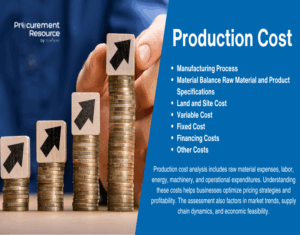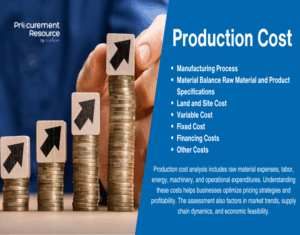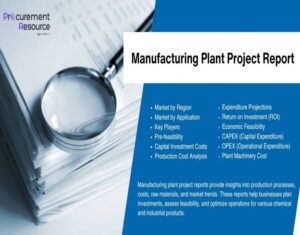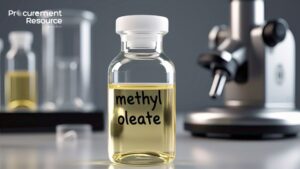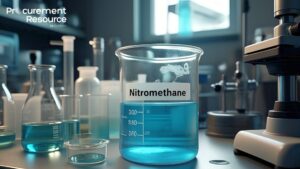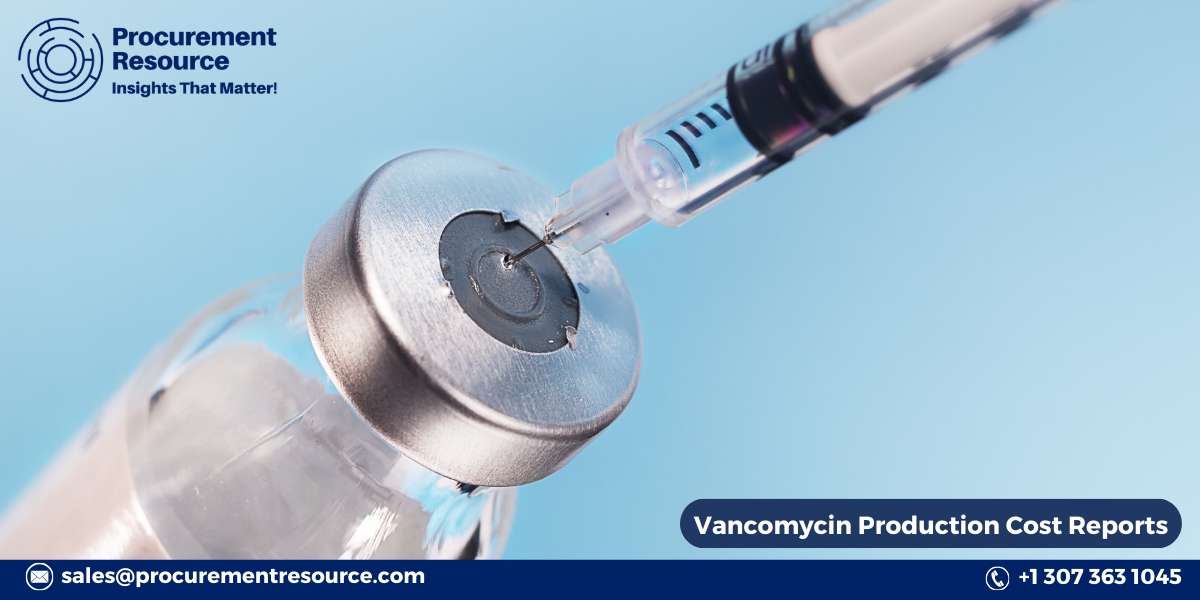
Vancomycin is a powerful antibiotic used to treat a range of serious bacterial infections, particularly those resistant to other antibiotics. Given its critical role in healthcare, understanding the production cost of vancomycin is essential for pharmaceutical companies, healthcare providers, and policy makers. This blog will provide a comprehensive look at the costs associated with producing vancomycin, whether in capsule or intravenous (IV) form.
What is Vancomycin?
Vancomycin is an antibiotic used primarily to treat severe bacterial infections, especially those caused by methicillin-resistant Staphylococcus aureus (MRSA) and other resistant strains. The drug is available in two main forms:
- Capsules: Usually prescribed for less severe infections or for patients who can take oral medication.
- IV Form: Commonly used in hospitals for more serious infections where rapid, systemic action is needed.
Request For Sample: https://www.procurementresource.com/production-cost-report-store/vancomycin/request-sample
Factors Influencing Vancomycin Production Costs
The cost to produce vancomycin depends on various factors, including raw materials, manufacturing processes, regulatory compliance, and market demand. Here is an overview of these cost factors:
1. Raw Materials and Sourcing
The primary component in vancomycin production is an actinomycete bacterium called Amycolatopsis orientalis, which is cultured to produce vancomycin. This bacterium must be carefully cultivated under specific conditions, adding to the complexity and cost of the production process.
- Cultivation Costs: Specialized nutrients, controlled environments, and fermentation processes increase expenses.
- Purification Process: Vancomycin needs to be highly purified to meet safety and efficacy standards, which adds additional costs.
2. Manufacturing Process
The production of vancomycin involves several stages, including fermentation, isolation, and purification. The drug’s final form, whether capsule or IV, requires specific adjustments. For example, the capsule form needs to be measured, encapsulated, and coated, while the IV form requires careful formulation for injection.
- Quality Control: Since vancomycin is used to treat severe infections, strict quality control is essential. This involves rigorous testing, monitoring, and adherence to Good Manufacturing Practices (GMP).
- Labor Costs: Highly skilled labor is required for production, especially for tasks such as quality control, which further drives up costs.
3. Regulatory Compliance
Vancomycin production must meet stringent regulatory standards. In the United States, for example, the FDA regulates the production of antibiotics to ensure they meet safety and efficacy standards.
- Clinical Trials and Approvals: Vancomycin has been on the market for a long time, so it does not require new clinical trials for existing uses. However, costs related to regulatory compliance still exist.
- Continuous Monitoring: Manufacturers must conduct ongoing safety monitoring and reporting, which adds operational costs.
4. Packaging and Distribution
The packaging of vancomycin depends on its form. Capsules require blister packs or bottles, while the IV form requires vials or bags. These packaging materials are essential to maintain the drug’s integrity.
- Cold Chain Logistics: If the IV form requires specific storage conditions, this will increase distribution costs. Cold chain logistics are necessary for ensuring the medication remains effective during transport.
5. Market Demand and Pricing
The cost of vancomycin is influenced by market demand, competition, and production volumes. Typically, higher demand allows for economies of scale, potentially lowering costs per unit.
- Competition: With other antibiotics on the market, manufacturers must balance competitive pricing with production costs.
- Volume of Production: Producing vancomycin on a larger scale can reduce unit costs but also requires substantial upfront investment.
Cost of Vancomycin Capsules
The price of vancomycin capsules can vary based on the manufacturer, dosage, and location. Generally, vancomycin capsules are more affordable than the IV form because they do not require as complex a distribution process and can be taken at home.
- Price Range: Vancomycin capsules may range from $10 to $20 per capsule, depending on the dosage.
- Production Cost Breakdown: The cost of manufacturing a single capsule includes the cost of active ingredients, encapsulation, quality control, and packaging. The total production cost per capsule typically ranges from $5 to $12, though it can vary based on the scale of production and raw material costs.
Cost of Vancomycin IV
The IV form of vancomycin tends to be more expensive than capsules due to its higher potency, stricter manufacturing requirements, and more complex logistics.
- Price Range: The cost of vancomycin IV typically ranges from $10 to $50 per dose, depending on the concentration and volume.
- Production Cost Breakdown: The cost per dose includes the active ingredient, vial or bag production, sterilization, and quality assurance. The total cost can range from $15 to $30 per dose, depending on scale, location, and other factors.
Final Thoughts
The production cost of vancomycin is driven by multiple factors, including the expense of raw materials, complex manufacturing processes, and regulatory compliance. While capsules tend to be more cost-effective, the IV form requires a more intensive process due to its intended use for serious infections. As pharmaceutical companies continue to innovate and improve manufacturing methods, the hope is that production costs will decrease, potentially leading to more affordable treatment options for patients worldwide.
Understanding these costs can aid healthcare providers, patients, and policymakers in making informed decisions about antibiotic therapies. By continuing to monitor and assess the cost drivers behind vancomycin, we can strive toward a more sustainable approach to producing and distributing this essential medication.
